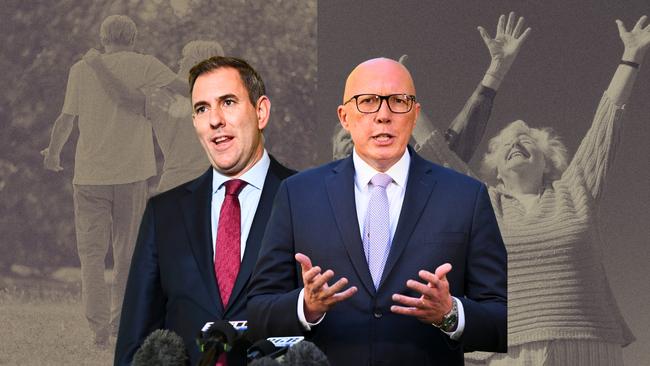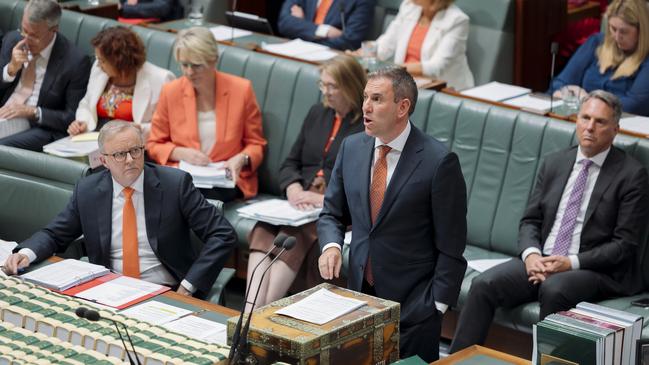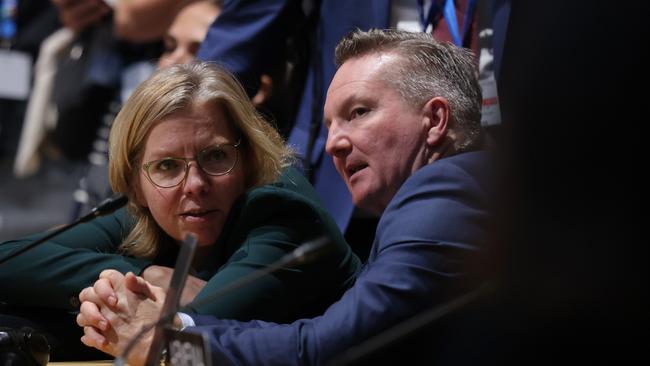Big win for Australia after Aussie grannies stop unrealised capital gains tax on superannuation


The so-called ‘‘grandmas and farmers tax’’ proposed by Jim Chalmers was one of the worst taxation measures ever conceived by an Australian treasurer.
After my commentaries and the work of others, it is set to be blocked in the Senate.
But an unrepentant Chalmers is vowing he will reintroduce the tax after the election. If he is foolish enough to take his tax to the next election, Australia’s grandmothers and families will almost certainly make Peter Dutton the next prime minister.

It would seem that over the weekend, Chalmers was confident that crossbench senator David Pocock would renege on his previous undertakings and vote for the bill with an indexed trigger point.
My last attempt to stop the tax – a Monday morning commentary online – emphasised that the Treasurer had vastly underestimated the impact of his tax on families once one grandparent died and their combined superannuation balance went above the $3m trigger point. In the past, I have been very critical of Pocock’s role in allowing the disastrous industrial relations legislation to pass the Senate. But this time he acted in the national interest. Well done.
Remember, Chalmers can still raise most of the money he is budgeting for without taxing unrealised capital gains. In each of my commentaries, I tried to help him by pointing out that he was in fact introducing two separate taxes. The first was an increase in the tax on income derived from super funds where balances were more than $3m. The extra tax was levied using exactly the same method used to levy the existing 15 per cent tax.
Lots of people might criticise the higher tax, but it is a straightforward tax with a significant degree of fairness.
When the Treasurer discovered that people in industry super funds and the Australian Taxation Office did not have the data required to calculate the tax when multiple funds were involved, he devised a hastily prepared unrealised profits tax.
In all my commentaries, I explained that all he needed to do was say that the unrealised profits tax would apply to any person who could not produce the data required to levy the 30 per cent tax on income on their super balances above $3m.
It would be very easy for the industry and retail super funds to set up separate funds where people could obtain this data.
If they can’t, then it is again easy for people to take their funds out of delinquent industry and retail funds and put them into either self-managed funds or other industry/retail funds that can provide the data.
My comments and those of others in the early days after the tax was announced concentrated on the basic unfairness of the tax and its impact on small farmers, entrepreneurship and innovation.

But those commentaries, while valid, didn’t swing the politicians. Then I attended a large social dinner and just before sweets, eight grandparents assembled around my table, led by forceful and angry grandmas who explained that I had not fully understood the wider tax impact.
The grandmas began blaming me for not writing enough about the tax and explaining how that if their husbands – grandpas – died first (or vice versa) the two funds would be united and go above $3m dollars and be subject to the tax. This completely blew out of the water the idea that the tax would affect very few people. The grandmas, and of course grandpas, were planning to make sure their families became aware of the situation. Suddenly, Chalmers’ grandma and farmers tax was becoming a family tax.
And politicians from all sides need to be aware that a number of ignorant politicians are now suggesting that people with funds of more than $3m in super should have a deemed rate of return rather than a tax on unrealised gains.
Early in the debate, I tentatively advocated the deeming idea to my readers as an alternative. Boy did I cop a blasting.
My readers showed that community anger against deeming was, if anything, more intense than against the Chalmers tax.
It was ironic that the mobilisation of Australia’s grandmas gathered intensity in the same week that Bill Shorten retired from parliament.
There are many in the Liberal Party who believe that if it wasn’t for Chris Bowen’s ill-conceived franking credit measures, Shorten would have become prime minister instead of Scott Morrison in 2018.

If Bowen had projected forward a simple reduction in franking credits, there would have been unhappiness, but it would have been accepted.
Instead, like Chalmers, he played silly, complex games and families simply wouldn’t stand for the bad treatment of some people over others.
Fascinatingly, in both the Bowen franking credits and the Chalmers unrealised gains tax, it was ALP pandering to industry funds that created complexities.
Both incidents were signs that the industry funds had not fully understood the implications of their size and have not moved to the next stage of their development.
And that is becoming evident in the Cbus scandals.
Meanwhile, in Liberal Party headquarters all fingers will be crossed, hoping that Chalmers sticks with his unrealised profits tax or switches to deeming and creates a likely ALP electoral disaster. I don’t think Chalmers is that silly when he can raise most of the required funds without a grandmas and farmers tax.






Australian grandmas, backed by my wonderful readers, have achieved a great victory by stopping the unrealised capital gains tax on superannuation. But so has the nation.